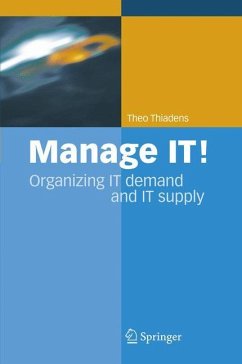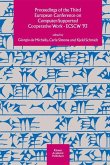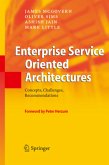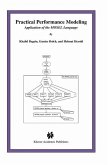This book came into being inthe form oflecture notes for thesubject Infor- tion technology management (IT management) at the Twente University inthe Netherlands. Since 1995 this subject is part of the Master s degree of the course Business Management and Information Technology. Over a decade of teaching, this bookdevelopedinto what it istoday. The book gives an idea of how organizations should organize their - formationandcommunicationtechnologyfacilitiesinordertobeabletosay IT does not matter. Management and the organization of IT are only conveniences within day-to-day operations and enablers, for organizations that want to supply other products and services. The book has the following starting points: (a) The IT support of products and services of organizations makes fu- tional and performance demandsontheIT facilities. In order to beable tomeettheserequirementsoptimally,anITarchitectureisrequired.The IT services and products are supplied within this architecture. (b) Controlling IT is part of normal operational management. This means that: at setting up the IT facilities the principles of logistics and operations management apply; the information, neededfor controlling a process, makes demandson the set-up of the information service process. The question is: whether someone is authorized to supplythe data; whether the data correspondswith thephysically present objects and whether the given data is correct and complete. (c) A distinction is made between both the IT demand and the IT supply organization. Both organizations have to be set up. Methods indicate, xi xii Preface which processes have to be in place in these organizations and each of these processes has ?nancial, personnel, legal and security aspects.
From the reviews: "This book discusses IT supply and demand, analyzing functional requirements and operational processes, using methods such as those defined in the IT infrastructure library (ITIL). ... This book will be useful for understanding the key concepts behind modern service-oriented IT organizations. ... In a nutshell, this is a good book and a good starting point for learning more about modern customer-oriented processes and service delivery." (Alessandro Berni, Computing Reviews, April, 2006)








